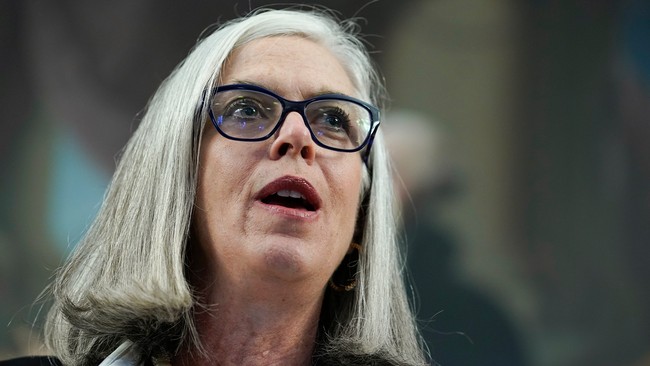Rep. Katherine Clark, the Democratic whip from Massachusetts, told Fox News this shutdown is a choice Democrats are making and framed it as a fight for people struggling with healthcare and rising costs. In her interview she argued that public anxiety over expenses is fueling support for her party’s stance, and she openly described using the shutdown as leverage in budget talks. That admission landed like a punch — federal workers are suffering, and she admitted that suffering is part of the bargaining chip. Conservatives see that as a raw, political calculus that puts power ahead of people.
Clark sat down with Fox News’ Chad Pergram as the shutdown stretched into its third week and explained the Democratic position with blunt language. She portrayed the refusal to reopen the government as a principled stand to protect Americans worried about healthcare and costs. During the interview she said, “the fear over rising costs, the fear that people who are working hard but not able to make it, is driving support for the Democratic position.” That framing casts this standoff as a moral crusade rather than a political gamble.
She acknowledged the very real hardship federal employees are facing — people furloughed or working without pay — and then pivoted to strategy. Clark criticized Republican leadership for not meeting Democrats on talks, but then admitted the strategic value of the shutdown. That candor is striking: a leader admitting hardship is being tolerated because it helps force concessions.
At one point Clark laid out the calculation in stark terms: “Shutdowns are terrible and of course there will be, you know, families that are going to suffer. We take that responsibility very seriously,” the lawmaker said. “But it is one of the few leverage items we have. It is an inflection point in this budget process where we have tried to get the Republicans to meet with us and prioritize the American people.” Hearing a senior Democrat call human suffering a leverage point makes it impossible to pretend this is only about policy.
That’s right, folks. Clark and her fellow Democrats view the suffering of federal workers and their families as “leverage” to be used against their political opponents, and they say so on camera. For many Americans watching, that’s a betrayal: the government should protect employees and services, not weaponize hardship. This admission makes the partisan line look less like a principled stand and more like a deliberate tactic to sway public sympathy.
🚨 @WhipKClark, the number two House Democrat, on the Democrat Shutdown: "Of course there will be families that are going to suffer… but it is one of the few leverage times we have."
These people are SICK! pic.twitter.com/7MRHsmGMGx
— Rapid Response 47 (@RapidResponse47) October 22, 2025
Clark also targeted House Speaker Mike Johnson over Rep.-elect Adelita Grijalva’s swearing-in, calling it “pretty darn outrageous that she was elected over three weeks ago and is not sworn in.” That complaint underscores how both parties use procedural fights to score points while the rest of the country waits for essential services. When representatives focus on political theater instead of reopening the government, ordinary citizens pay the price.
The justification Democrats offer is familiar: hold out to preserve Obamacare subsidies and reverse Medicaid changes identified as cuts under prior legislation. Those are policy goals some voters support, but the tactic of halting government operations to force the issue is risky and cruel to employees and families. Using a shutdown to extract concessions invites chaos in services, payrolls, and public trust.
Republicans will argue the right way to settle these disputes is through negotiation and votes, not by making people suffer while cameras roll. The public expects lawmakers to prioritize functioning government first and fight policy battles through legislation, not by pressuring with shutdowns. Clark’s admission hands conservatives a clear rhetorical advantage: if your opponent admits they are using pain as leverage, you don’t have to invent the critique — you just point to her words.






